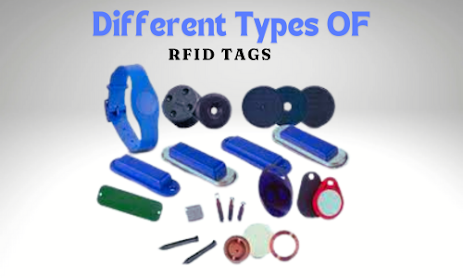Choosing the Right Customized RFID Tags: Applications, Features, and Cost Breakdown
RFID technology has completely transformed asset tracking, inventory management, and access control across a wide range of industries. As businesses strive to improve efficiency and accuracy, selecting the right customized RFID tags becomes critical. Today we talk about special tags that can be used in different industries. It also looks at important things to consider and how much it costs for other uses.
Understanding RFID Tags and Their Customization
RFID tags are these little gadgets that send out
data to RFID readers using radio waves. They are commonly used for tracking assets,
managing inventory, and enhancing security. The ability to tailor customized RFID tags
according to specific business needs, applications, and environments sets
customized RFID tags apart. Customization can range from selecting the right
material, size, and design to integrating specific functionalities like
extended read range or additional security features.
Applications of Customized RFID Tags
The
versatility of customized RFID tags lies in their ability to adapt to various
industries and environments. Here are some key industries and their specific
applications:
- Retail and Supply Chain
Management
RFID tags are extensively used in retail and supply chain management for tracking inventory, preventing theft, and ensuring accurate stock levels. Customized RFID tags in this sector are often designed for high-volume use, incorporating features like anti-tampering mechanisms and real-time data integration. - Healthcare and
Pharmaceuticals
In the healthcare sector, customized RFID tags play a crucial role in patient identification, medication tracking, and equipment management. For pharmaceuticals, these tags help monitor drug movement throughout the supply chain, ensuring authenticity and reducing the risk of counterfeit products. - Manufacturing and Industrial
Settings
In manufacturing environments, customized RFID tags are used to track machinery, tools, and components. The tags are often ruggedized and designed to withstand harsh conditions, such as high temperatures, chemicals, and moisture. - Logistics and Transportation
Customized RFID tags are integral to tracking shipments, monitoring fleet management, and ensuring the security of transported goods. These tags are often designed with extended read ranges and robust construction to withstand outdoor conditions and long distances. - Event Management and Access
Control
In event management, RFID tags are used for attendee tracking, ticketing, and access control. Customized tags in this context may include features like branding, enhanced security layers, and personalization options to offer a seamless experience for users. - Animal Livestock Tracking
RFID tags enhance animal livestock tracking by providing automated,
real-time identification and monitoring of animals. These tags store unique
data, enabling efficient management of health records, breeding schedules, and
overall livestock performance. They also facilitate precise tracking, improving
inventory management and disease control, while reducing manual labor and human
errors.
Key Features to Consider When Customizing RFID Tags
Choosing
the right RFID tags requires a thorough understanding of the features that best
suit your industry and application. Some important features include:
- Frequency Range
RFID tags operate at different frequencies: low frequency (LF), high frequency (HF), and ultra-high frequency (UHF). The choice of frequency depends on the application requirements. For instance, UHF tags are ideal for long-range tracking, while HF tags are better suited for applications like access control. - Material and Durability
The environment in which the RFID tags will be used dictates the material choice. For example, tags used in industrial settings might need to be made of metal or hard plastic to withstand rough conditions. Meanwhile, retail applications might require lightweight, flexible materials. - Size and Form Factor
Customizing the size and form factor of RFID tags allows them to blend seamlessly into the product or environment they are tracking. Small, discreet tags are often used in healthcare, while larger tags are common in industrial applications. - Memory Capacity
Depending on the amount of data that needs to be stored, RFID tags can be customized with varying memory capacities. Tags with high memory are suitable for applications where detailed tracking information is required, such as in supply chain management. - Security Features
For industries like healthcare and pharmaceuticals, enhanced security features such as encryption and password protection are essential. These ensure that sensitive data is not compromised during transmission.
Cost Breakdown of Customized RFID Tags
The cost
of customized RFID tags varies significantly based on the features, materials,
and application. Here’s a
general overview of the factors that determine the cost:
- Material and Design
Tags made of durable materials like metal or those designed to withstand harsh environments generally cost more. Additionally, complex designs or tags with advanced aesthetics increase production costs. - Frequency and Read Range
UHF tags, which offer longer read ranges, tend to be more expensive than LF or HF tags. However, the cost is justified for applications where long-range tracking is necessary. - Volume of Order
As with many products, bulk orders of customized RFID tags typically result in lower per-unit costs. Businesses planning large-scale deployments benefit from economies of scale. - Additional Features
Security features, increased memory, and enhanced durability all add to the overall cost. Companies need to consider the advantages of these features with their financial limitations. - Application-Specific
Requirements
Tags customized for specific industries or environments, such as those used in healthcare or industrial settings, may incur higher costs due to the need for specialized materials or configurations.
Conclusion
Choosing
the right customized RFID tags involves considering your industry’s specific
needs, the environment in which the tags will be used, and the features that
will deliver optimal performance. While the cost may vary based on these
factors, investing in the right solution can lead to significant improvements
in efficiency, accuracy, and security. By understanding the applications,
features, and cost dynamics of customized RFID tags, businesses can make
informed decisions that align with their goals and operational requirements.




Comments
Post a Comment